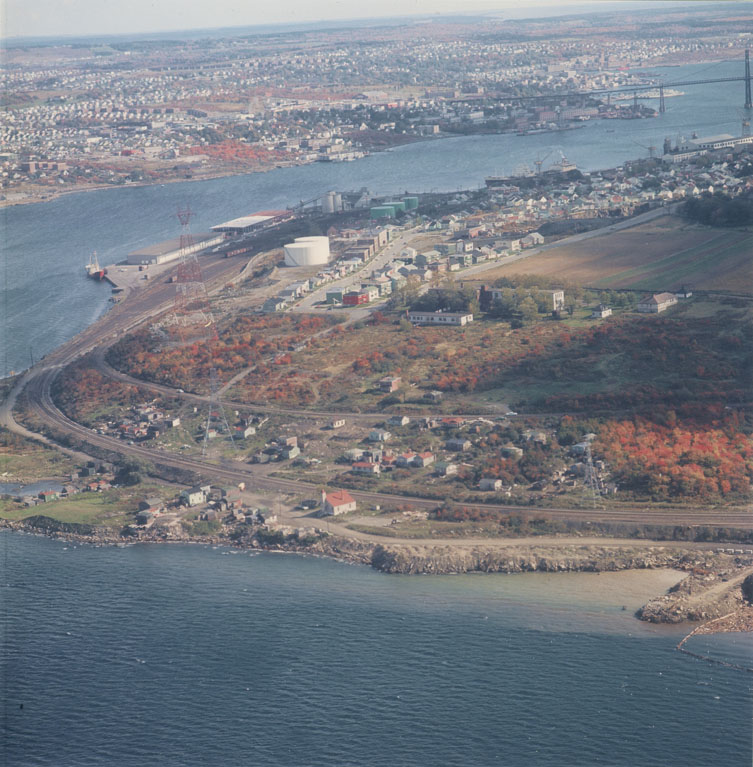
Africville (Halifax): A vibrant Black community established in the early 1800s, tragically demolished in the 1960s during urban renewal efforts. Africville's history exemplifies the resilience of African Nova Scotian communities in the face of systemic racism, urban displacement, and cultural erasure, serving as a rallying point for civil rights and historical preservation in Canada.
Founding and Early History: Africville was established in the early 1800s by descendants of Black Loyalists and Refugees. Located on the shores of Halifax's
Bedford Basin, the community grew as African Nova Scotians sought refuge from systemic racism and social exclusion.
Key Developments: Africville flourished as a tight-knit community despite the lack of infrastructure and municipal services provided by Halifax. Residents built homes, churches, and schools, most notably the Seaview African United Baptist Church, the heart of the community.
Significant Events: In the 1960s, Africville was destroyed under the guise of urban renewal, with residents forcibly displaced. This event became a symbol of systemic racism in Canada. In 2010, the Halifax Regional Municipality issued a formal apology, and Africville Park was established to honor its legacy.
Legacy: Africville remains a focal point in discussions of racial justice and African Nova Scotian heritage.
Preoccupation of Settlers: Farming, labor, and fishing.
Known For: Once a vibrant Black community, Africville was demolished in the 1960s during urban renewal, sparking a significant civil rights movement.
High-Profile Individuals: Rocky Jones (civil rights leader), Eddie Carvery (Africville advocate).
Significant Events: Displacement and demolition (1964-1970). National apology and park dedication (2010).

